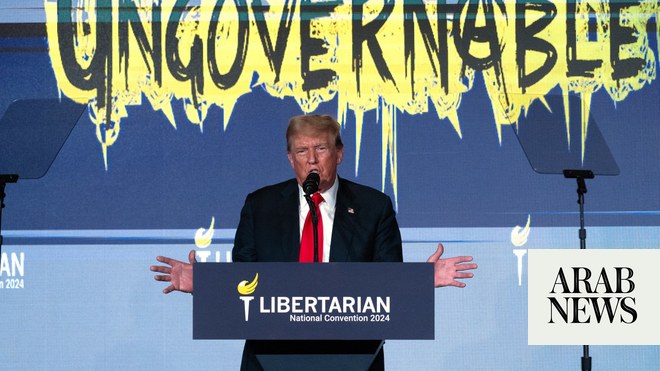
Even though we saw a slight increase in the number of Arabs and Muslims who ran for and won office in Tuesday’s midterm elections in the US, the key to being effective is not in your ethnicity, religion or nationality. That is a fallacy that many Arab and Muslim candidates take with them when they win elections and serve in public office.
What is really needed is for victorious Arab and Muslim candidates to focus on strengthening their voices and agendas by building coalitions through achieving consensus and compromise with elected officials of other ethnic and religious backgrounds, and even with members of the other political party.
A good example of how an Arab American can fail to achieve results on so-called Arab issues is Michigan congresswoman Rep. Rashida Tlaib. Although she is popular, having won reelection for a third term in office this week, she has not been able to usher in laws that help the Palestinian cause, which she often touts as an important issue.
What she does very well is being able to address the needs of the general population of her congressional district, which is more white, Hispanic and African American than Arab or Muslim American. She does a great job pushing through policies that help all of the residents of her district.
But she is not very good at effecting policies for the Palestinians and, because she herself is a Palestinian American, that is a priority expectation for many members of the public. As a Muslim who wears her Palestinian identity on her sleeve, can she get laws passed to help the Palestinian people?
The answer is no. Tlaib can partner with a small number of like-minded members of Congress, but she cannot seem to get other legislators, who may disagree with her on bigger political issues, to co-sponsor her bills. Her introduction in May of a bill recognizing the Palestinian Nakba in Congress was effectively dead on arrival because it had only a handful of co-sponsors, with at least 218 supporters needed for it to become law.
This is a handicap for Palestinian, Arab and Muslim elected officials who want to focus on helping their heritage constituency’s foundations. What they need to do is identify needs that can be shared with others and build a coalition, such as what African American Cyril Nichols, a state legislator in Illinois, has done.
What they need to do is identify needs that can be shared with others and build a coalition
Ray Hanania
Democrat Nichols, who was appointed to represent the 32nd Illinois district last year, won election to his seat on Tuesday by a wide margin. His district includes a slice of Chicagoland"s large Arab American, mostly Palestinian, population. After taking his seat in the state legislature, he identified a need that Arab Americans have, which is to receive their share of the contracts Illinois awards to businesses.
To help minority businesses, Illinois has created a Minority Business Enterprise program that sets aside 25 percent of the $46 billion it awards in annual contracts to “designated minorities” who own businesses. Under this scheme, minorities including Blacks, Hispanics, and Asians benefit from contracts worth about $13.5 billion. Nichols has said he wants to include Arabs in the program for the first time.
These contracts are paid for by the state’s taxpayers. And those taxpayers include Arab Americans, who until now have not been able to win state contracts because it is very difficult to compete with businesses that have a long history of serving the state. Being involved in the Minority Business Enterprise scheme would give them the chance to ensure they get some of the money back that they have paid into the state in taxes.
The problem is that many Arab American politicians base their role on helping their own ethnic and racial community, not by including them in general benefit programs such as the one in Illinois. Instead, they get involved in emotionally charged issues to do with Arab heritage and origins, such as proposing a Nakba law.
For someone like Tlaib, the Nakba bill will not result in Americans recognizing the forced displacement of Palestinians in 1948, but it might help strengthen her popularity among the Arab and Palestinian communities.
How do we make Arab and Muslim Americans stronger and more successful? Should we push laws to recognize injustices in the Middle East that only gather a small amount of support? Or should we turn inwards and focus on changing laws to strengthen the situation of Arab and Muslim Americans today?
Nichols is doing just that by seeking to include Arabs in the Minority Business Enterprise program. To be successful, he needs the support of 50 percent of the 218 members of the Illinois House of Representatives. He already has the backing of Speaker Emanuel “Chris” Welch.
What Nichols has done is far more productive in helping Arabs and Palestinians than what Tlaib has done. And Nichols doesn’t even have an Arab background.
• Ray Hanania is an award-winning former Chicago City Hall political reporter and columnist. He can be reached on his personal website at www.Hanania.com. Twitter: @RayHanania












